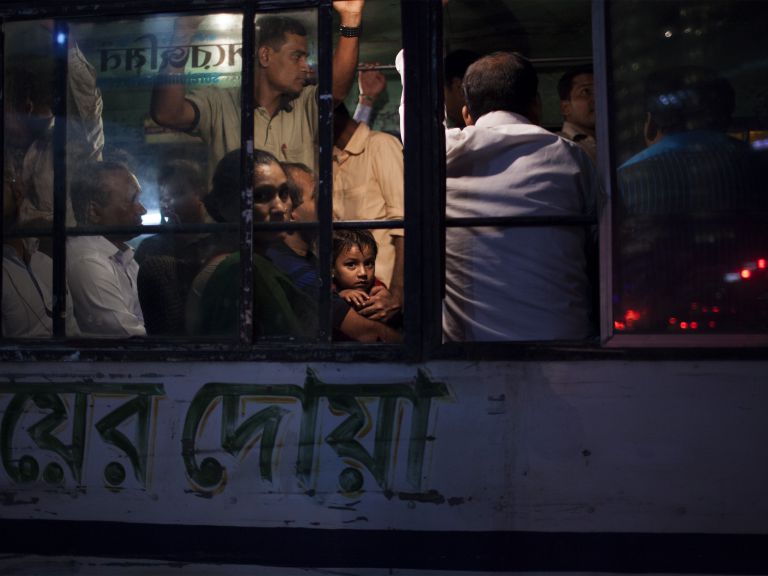Project Detail: Daily Struggle
Contest:
LuganoPhotoDays 2014
Brand:
LuganoPhotoDays
Author:
Alfredo Casas
Project Info
Daily Struggle
‘Life is but a succession of tests to survive’ –Gabriel Garcia Marquez
For many, Dhaka is known as the clothes manufacturing capital for multinational fashion outlets. Others will know its unfortunate reputation as being continually bottom of the Economist’s ‘liveability ranking’. Few know little more. This lack of international coverage coupled with the recent Rana Plaza disaster motivated me to investigate the truth about the conditions and poverty of Dhaka in the first part of my project.
The scale of the poverty depicted in the press is not exaggerated. As my photos show, life is not to be taken for granted; citizens of Dhaka live in a cauldron devoid of hygiene, security or stability. They live with no real health service, skipping between the horror of traffic deaths in search of employment and food. In one of the world’s most populated cities there is scarcely room to gasp. Nevertheless, there is a hope and determination bursting from Dhaka’s inhabitants which has gone unnoticed in most media reports. Despite living in such inhumane conditions, it is quite clear that the indefatigable desire to progress and overcome these hardships is what drives these people most. In my pictures, I tried to show that these people are not resigned to misery.
Their hope is certainly working towards progress. In the last twenty years, the rate of poverty has decreased from 57% to 31% and incredibly Bangladesh has achieved most of the Millennium Development Goals (MDGs) set by the United Nations in the face of the 2015 deadline. While these statistics are impressive, they neglect to show the truth that problems such as climate change are seriously impeding this remarkable progress.
In the second part of my project, I aim to highlight these destructive factors. Whilst in the first part of the project I based myself in the city, the extent of the country’s problems dictate that I must now travel more extensively to appreciate the gravity of the current situation. Such is the problem of climate change that rural dwellers are migrating to the city in droves, leaving the outskirts even more impoverished and uninhabitable. The contrast of flooding with varying rainfall has made Bangladesh a carousel of migrants vying for clean drinking water and resources. In the second part of my project I aim to give a voice to the rickshaw pullers, garment workers, factory workers living on the world’s lowest salaries and the ever-suffering families who find themselves moving between city and countryside amid the chaos of traffic and toil.
The country famously described by Henry Kissinger as ‘a basket case of disaster’ is still thus to the eye of the ‘developed word’. There is no doubt however, that his crude words deny the hope and undying effort that all Bangladeshis muster daily to transform their future. It is my intention to show the progress that they are making against such horrific odds. It is a story that needs to be told.









